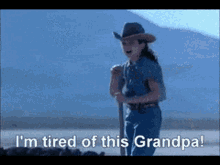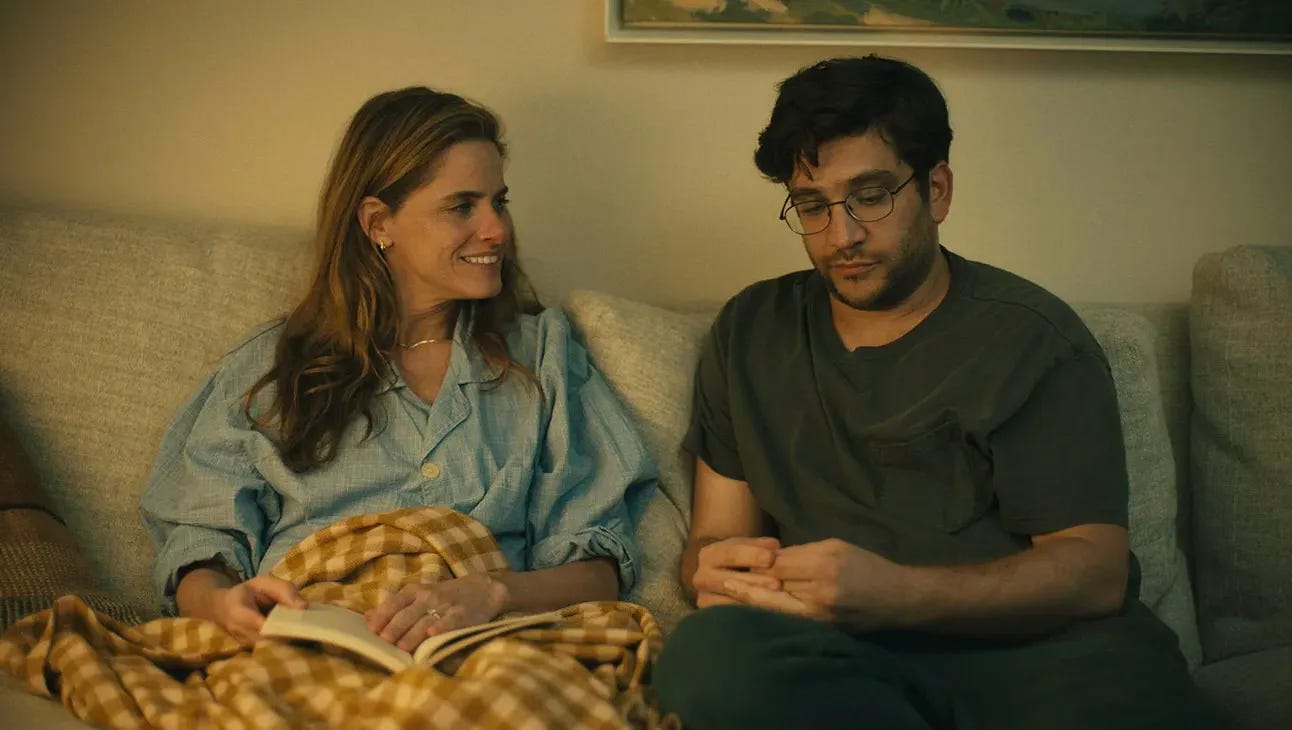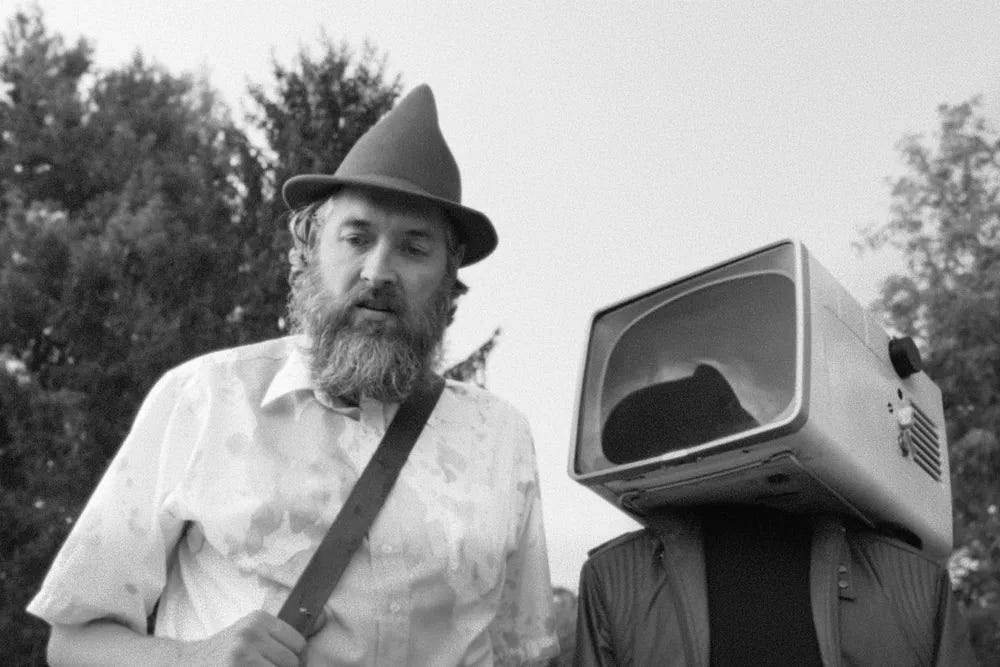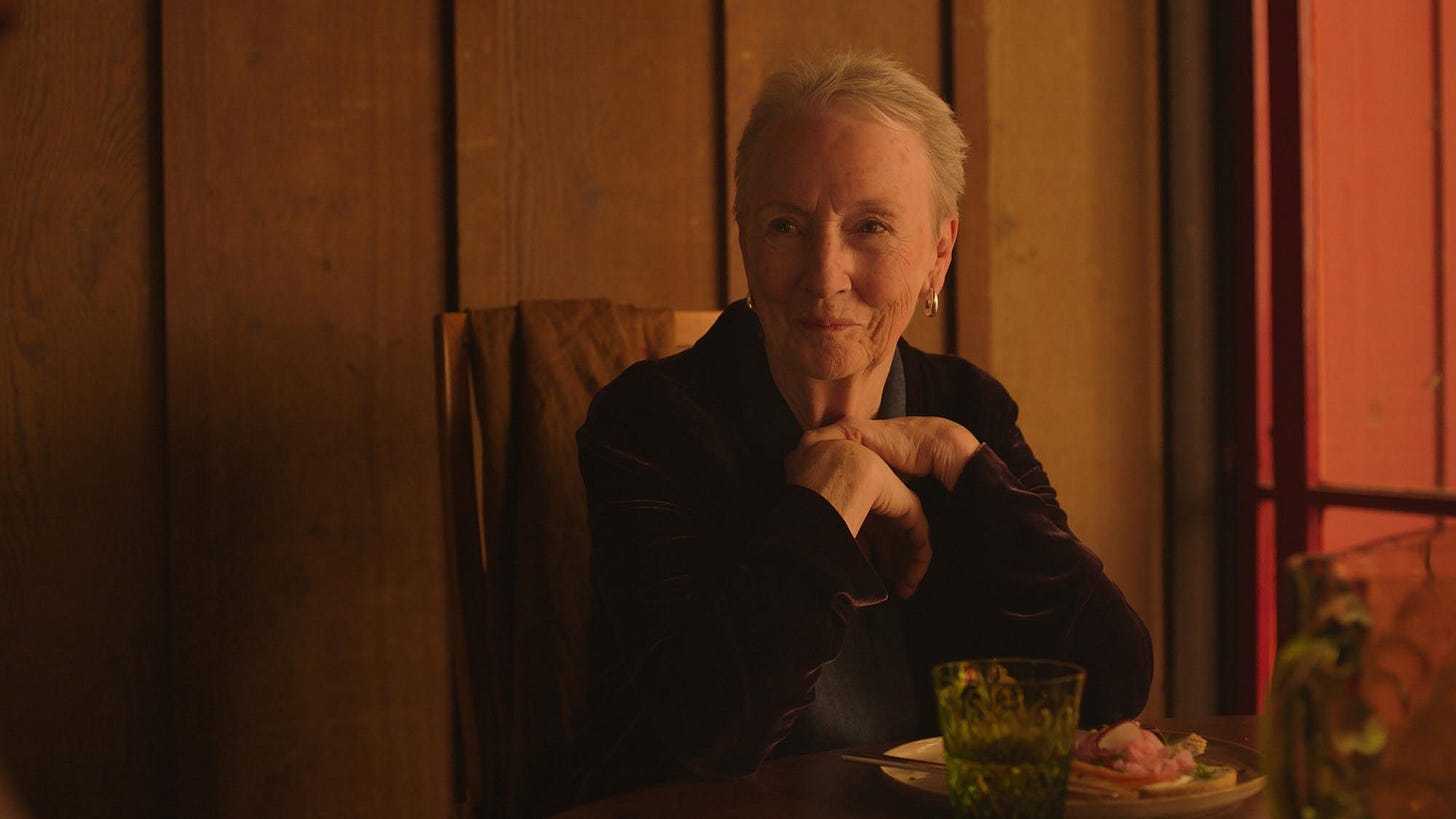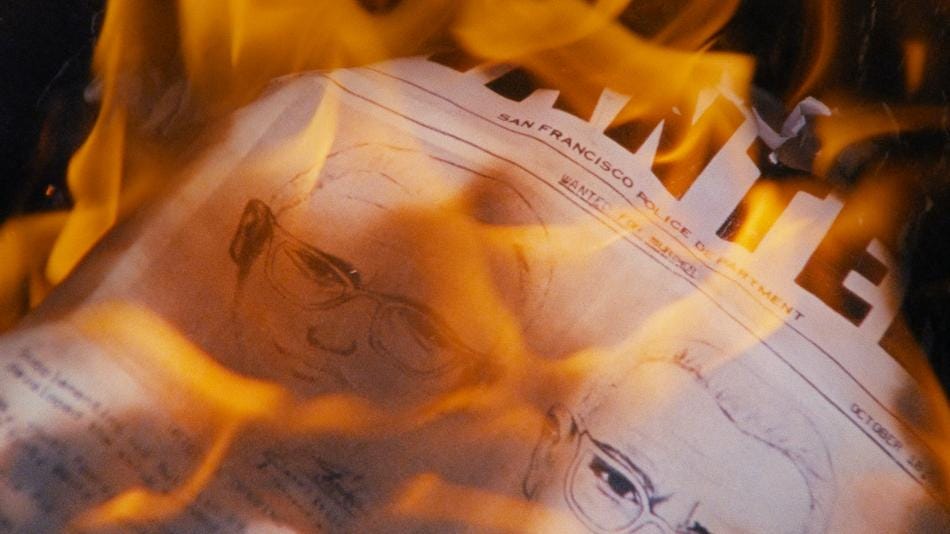The Middling Middle of a Film Festival
Days 5 & 6 of the Chicago Critics Film Festival. [5/8/2025]
Closing night of last year’s CCFF was a magical moment, with Ghostlight providing a fantastic crowd pleaser to wrap up the festival. As I ready to experience something similar from tonight’s A Little Prayer and Dirt Road, I’m struck by how the middling part of the festival can often feel a little more like filler. The weekend crowds that showed up for Dylan O’Brien and the biggest A24 releases have cleared out, leaving mainly the festival passholders to view the rest of the programming. Perhaps my perceived valley in quality is an unintentional figment of my opinion. I know plenty of people who experienced little to no lull in the festival’s bounty, leaving me feeling like my exhaustion may play a role in my assessments (though I doubt it).
Anyway, here are my reviews for the films in the late-middle portion of CCFF. My apologies if they sound a bit crueler than usual.
Fantasy Life (dramedy)
One of the very few all-out stinkers of the Chicago Critics Film Festival has arrived. Fantasy Life is a low-key indie comedy about a neurotic man who nannies for his therapist's grandchildren. He slowly starts falling for their mother, a failing actress who feels as directionless in her marriage and career as the film is in its purpose.
Matthew Shear (tripling as writer/director) and Amanda Peet charm as the two leads trying to find a connection with one another. A supporting cast that includes a murderer's row of legendary character actors (Judd Hirsch, Andrea Martin, Bob Balaban, Holland Taylor) brings out a handful of laugh-out-loud moments. But none of this is hung on anything but a weak, plotless ick.
The meandering film doesn't seem to want arcs from its leads. They will change off-screen between scenes, and inform us through conversation with one another how much they have learned, which is still very little. Shear claims to have made the movie with the depiction of mental health improvement at the forefront of his mind, yet his therapy scenes are mainly played for laughs and cut away from after the first few minutes of both protagonists’ first session with that therapist. This is a poor screenplay, and as charming as the leads are individually, nothing sells the audience on their noticing one another except their physical attractiveness. That sounds like it could be the point, but the movie spends so much time debating whether or not these two are going to get together and not enough time explaining why they want to, or why we care that they want to.
At a festival with other offerings of quiet comedy like The Baltimorons, Twinless, and even parts of Sorry, Baby, it's difficult for Fantasy Life to stand out. That being said, as an appreciator of the Woody Allen style of comedy, I must at least give kudos to Shear for trying to make something in this vein. It's just too bad he doesn't seem to have anything to say except how nervous everything makes him.
2/5
OBEX (surreal fantasy/comedy)
Shot in black and white and adapting tropes and aesthetics from 20th-century computer and television technology, OBEX owes a greater debt to video games than cinema. Its first act haunts a media-obsessed caricature of a loser named Conor, who spends every day huddled in front of his many screens with his dog. After answering an ad for a computer game called OBEX that will place him inside it, he discovers strange powers affecting his life that eventually take the one thing from him that he can’t live without. Conor then must press into a world of fantasy RPG tropes with a dial-up coat of paint as he slowly realizes that it may all have been about him the whole time.
In the vein of the recent comedy Hundreds of Beavers, OBEX transforms its ordinary setting into a fantasy world inhabited by special effects castles and extras wearing animal masks. OBEX is, unfortunately, lacking the kinetic humor and cinematic language of Beavers, leaving much to be desired in its presentation. Too often does a cut to a cicada (a motif and villain of the film) attempt an implication of profundity. Instead, I was left lulled into an unexcited, dazed state by this film. There’s plenty of charm to its scrappy presentation and time-to-grow-up mentality, but for those who have seen better versions of both OBEX doesn’t innovate.
3/5
Familiar Touch (light drama)
What aging brings for us all lies at the heart of Familiar Touch. Ruth, an octogenarian with dementia (played with lovely restraint by Kathleen Chalfant), finds her life changed when she’s placed in a care facility. Adapting now to a realization not just of her new space, but her mind, we observe her attempts to find peace as she cycles through different ages in her mind.
Familiar Touch is a fine addition to the festival and a seemingly accurate look at dementia. Talented first-time director Sarah Friedland knows where to place the camera and how to get nuanced performances from her actors. Her ability to evoke emotions from movement is preserved from her short film work, while now adding a sincere empathetic attachment to those we see on screen. Everyone gets to be a person in this movie, and I believe that is mostly due to Friedland’s direction.
There’s just not much of a screenplay here. The filmmaker’s post-film QnA revealed how much she wanted to create a space where we understood our character and didn’t dismiss her to pity. In execution, I don’t know if Familiar Touch succeeds in that goal. We are almost always outside of Ruth, wondering how much she understands or does not. We find her perspective dignified in moments, but rarely hopeful or accepting. Like its protagonist, Familiar Touch is thoughtful, adorable, and sensitive, but often does not know where it is or where it wants to go.
3/5
Zodiac Killer Project (true-crime adjacent documentary)
Well, somebody had to say it!
Aspects of Zodiac Killer Project speak to a sensibility many of my friends and peers have ragged on me for having. "You just like things that are meta," they'll respond to my rambling rants about a Community episode or passionate paragraphs about a certain stellar Star Wars movie. They ignore the fact that I contain an equally strong anger towards bad "meta" narratives that lack substance.
Zodiac Killer Project lands halfway between these passions. The documentary is about the filmmaker's unmade docu-drama. Information is delivered through monologues over locations he'd chosen for the film and some B role footage of certain clichéd details: the swinging light of an interrogation room, the curling corners of a singed police file, the close-up of the potential killer’s eyes. All the while, our narrator laughs at how formulaic the true crime genre has been. Clips from documentaries and drama series that depict real-life killers appear in montages to assure us of how cliché the titular project within the film would have been.
There's a charming nature to the "use every part of the buffalo" approach taken here. The filmmaker's rants on his idealized project give us everything we need to picture in our heads the boring version of this film we'd half watch on Netflix while doing dishes or gaming on another screen. A few quick asides take jabs at the exploitation of victims in these kinds of pictures, giving the audience intense satisfaction at watching them taken down a peg.
But greatness eludes this director; his rants about how hacky he'd make his true crime project are still captured in the same hacky sensibilities he's exposing to us. The film's meditative energy doesn't diffuse its penchant for tacky sound effects, nor does its lack of composition somehow make the film seem any more honest. These low-quality quirks make one feel as if they should be watching this on their phone over lunch rather than sitting in a theater.
The meta-narrative of the project within the project would work wonders if perhaps the filmmaker at the center of it had much perspective on himself. Instead, the film feels like it's trying too hard to get ahead of its own inception without any aspirations except production. Being meta isn't the same as being self aware, and neither are the same as making something of real substance.





